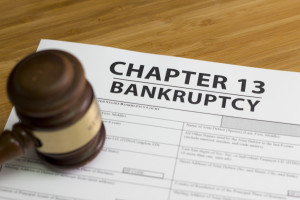 The ultimate purpose in filing bankruptcy is to obtain a discharge of most, if not all, of your debts. A bankruptcy discharge releases the debtor from personal liability for certain specified types of debts, i.e., the debtor is no longer legally required to pay those debts that are discharged. The discharge is a permanent order which prohibits the creditors from engaging in any and all forms of collection activity on such debts.
The ultimate purpose in filing bankruptcy is to obtain a discharge of most, if not all, of your debts. A bankruptcy discharge releases the debtor from personal liability for certain specified types of debts, i.e., the debtor is no longer legally required to pay those debts that are discharged. The discharge is a permanent order which prohibits the creditors from engaging in any and all forms of collection activity on such debts.
What Is The United States Tax Court And What Happens When The Tax Court Hears A Case?
The United States Tax Court is a federal trial court established by Congress under Article I of the U.S. Constitution, section 8. The Tax Court specializes in adjudicating disputes over federal income tax, generally prior to the time at which formal tax assessments are made by the Internal Revenue Service. The U.S. Tax Court is not an agency of, and is independent of, the executive branch. The U.S. Tax Court is the only forum in which taxpayers may file a case without having first paid the disputed tax in full. Tax Court judges are appointed for a term of 15 years, subject to presidential removal for actions related to neglect, inefficiency, or malfeasance.
WHAT IS AN OFFER-IN-COMPROMISE?
Taxpayers that are unable to pay their tax bill have several options. All is not lost. Taxpayers who can’t pay their tax liability or who create a financial hardship by paying this liability may take advantage of a federal tax program in which they utilize a mechanism known as an “Offer In Compromise” to resolve and settle these tax problems with finality. The Offer in Compromise (or “OIC” in IRS and legal jargon) program is not for everyone and the IRS advises that taxpayers explore all other payment options before submitting an OIC. An experienced tax professional is absolutely essential in all steps of the process of formulating, making, and awaiting the IRS to accept, an OIC.